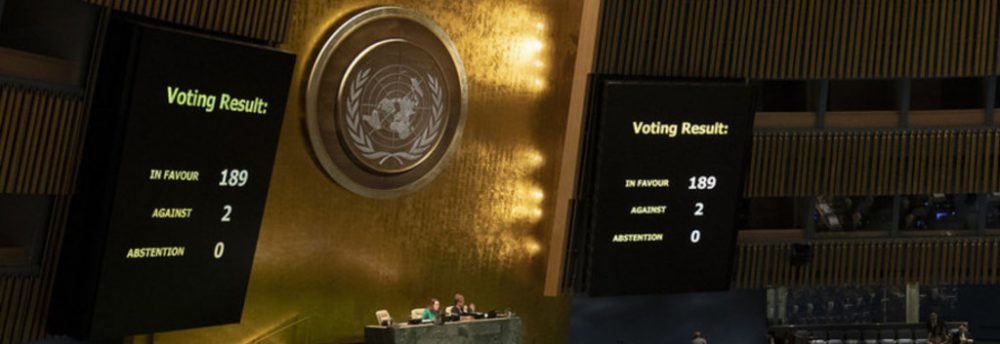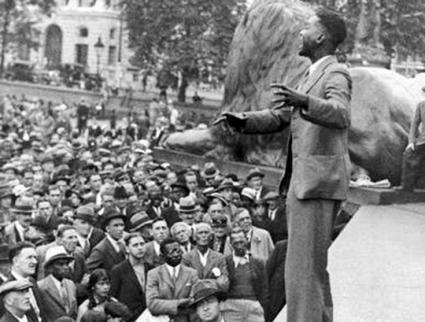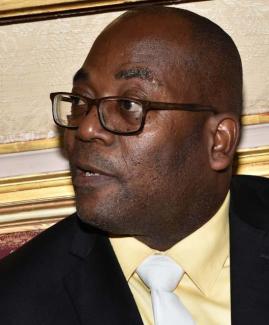Source: The Intercept
by Glenn Greenwald
 Vereadora Marielle Franco was the fifth most voted of the last elections and
Vereadora Marielle Franco was the fifth most voted of the last elections and
was based in the favela of Maré
ON SUNDAY NIGHT, Brazil’s most powerful television outlet, Rede Globo, devoted 45 minutes of its highly watched “Fantastico” program to the assassination of Rio City Council Member Marielle Franco and the killing of her driver, Anderson Gomes. This story has dominated headlines in Brazil for a full week, and, as protests proliferate around the country, it continues to be covered as a major story by news outlets around the world.
This was not a case in which Globo has elevated a story to major prominence. This was the opposite: Globo trying to take hold of a story that has exploded through citizen-driven online activism and anger without any need for bolstering from major media outlets.
Major media relegated to bystander
For once, Brazil’s major media has been a bystander in this story, not its driver. Globo could see that the reaction to Marielle’s killing was growing, getting stronger, moving in directions that make many Brazilian elites extremely uncomfortable. Last night’s “Fantastico” coverage was Globo’s attempt to get this story under control — under its control.
There were parts of “Fantastico’s” reporting that were genuinely informative and journalistically excellent — particularly Sonia Bridi’s detailed, evidence-based exposition of how this horrific crime was carried out with such chilling professionalism and competence, convincingly showing that whoever engineered the murders knew exactly how police would investigate and exactly how to prevent detection.
That terrorizing fact is an important piece of the puzzle when understanding who ordered Marielle to be killed; whoever killed the activist who devoted herself to denouncing police abuses is intimately familiar with how the police function.
Other parts were genuinely moving and beautifully presented, particularly the interviews with Marielle’s devastated widow Mônica, and, separately, with Marielle’s 19-year-old daughter, her parents, and her sister. The prominent inclusion of Anderson’s life and death, and the delicately handled and wrenching interview with his grieving widow, was commendable given the temptation to forget about the death of Marielle’s driver.
Marielle’s remarkable life trajectory
The show also did justice to how remarkable and inspiring was the trajectory of Marielle’s life: from poverty, deprivation, and single motherhood at 19 as a black woman in a favela to a master’s degree in sociology, human rights activism, and political empowerment through massive voter support in her 2016 election to the City Council.
 “Fantastico” interview with Marielle’s widow, Mônica. YouTube/Fantastico
“Fantastico” interview with Marielle’s widow, Mônica. YouTube/Fantastico
This was not an insignificant media moment in Brazil. A black, leftist lesbian from the sprawling Maré favela, and from the socialist PSOL party, was honored and glorified on one of Globo’s most important media platforms, while millions of ordinary Brazilians around the country, far away from Rio and São Paulo, watched. They prominently featured, rather than hid, Marielle’s wife.
The perspectives of prominent leftist politicians and activists were respectfully included. And they condemned and vilified the right-wing politicians and judges who have used the internet to spread disgusting lies about Marielle designed to malign her with toxic stereotypes of black women from favelas (she was pregnant at 16, married to a notorious drug dealer, supported in her election by a drug gang: all demonstrable lies). All of that is worth celebrating.
A political person
BUT MARIELLE WAS, first and foremost, a political person: a radical in the best and most noble sense of that word. It’s her radicalism that made her such an inspiration to so many ordinary and voiceless citizens, and a threat to so many powerful and corrupt factions. Her political activism, her political beliefs, were Marielle’s core, a major part of her identity, the centerpiece of what made her a figure of such singular force and power.
The crime that ended her life was also purely political. There is no way to meaningfully understand Marielle’s life and assassination without a candid, clear, and honest discussion of her politics. What makes her story such big news is her politics, which in turn produced the political motives that caused powerful people to want her dead.
These are the most difficult, most complicated, and most important subjects to cover when reporting on Marielle’s life and death: her relentless and brave activism against the most lawless police battalions, her opposition to military intervention, and, most threateningly of all, her growing power as a black, gay woman from the favela seeking not to join Brazil’s power structure, but to subvert it.
What “Fantastico” avoided almost entirely
It’s not a coincidence that the last event she attended, the one where she was followed and then killed upon leaving, was titled, “Young Black Women Changing Power Structures.”
And it was these subjects that “Fantastico” avoided almost entirely — except when they brazenly manipulated them for its own purposes. The only segment purporting to describe Marielle’s politics was an extremely banal, condescending discussion of the definition of “human rights,” which “Fantastico” basically reduced to an anodyne, uncontroversial declaration that all humans are born free and should be treated equally: propositions that virtually every Brazilian politician from right to left would happily endorse. They drained Marielle’s politics of its vibrancy, radicalism, and force, and converted it into a simplistic comic book of empty clichés that nobody would find objectionable.
Extinguishing Marielle’s real political sensibilities were necessary to achieve Globo’s real objectives here. The emotions from Marielle’s brutal assassination are overwhelming and powerful. The question is, to what ends will those emotions be directed? What outcomes will they foster? What views and movements will they strengthen?
Ultimately, what “Fantastico” was really up to here became extremely clear by the end of its coverage. They took the still-expanding power of Marielle’s story and tried to reduce its power — limit it — to a simple, apolitical human interest story, something that made you cry and feel sad and empathetic and maybe angry, but not in any way that would make you embrace Marielle’s causes or crusades for justice or devote yourself to the political agenda she symbolized.
Awakening traditionally powerless people
Globo and its comrades in elite culture see a serious danger in the aftermath of Marielle’s killing, for good reason. They see that it is awakening — emboldening — traditionally powerless people to the cruelties of extreme societal inequality and the intolerable racist criminality of its police forces.
It is galvanizing favela residents to organize and mobilize. It is pointing an accusatory finger not at drug traffickers and ordinary criminals — the favored Globo narrative — but at the very forces used by the country’s elite to impose its will and secure its privileges: its military, its police, and its traditionally white, male, rich political system.
It was those factions and those policies which Marielle had devoted her life to fighting — not just in defense of the pleasing, unchallenging, clichéd notions of “human rights” that “Fantastico” centered. Those who feel threatened by Marielle’s activism and political principles see that her death is strengthening those things — and desperately want to re-direct these powerful emotions away from what she believed and inspired, toward something less disruptive, less threatening to status quo power.
That’s why “Fantastico” went heavy on the powerful human emotions of this story — the grieving, weeping relatives, the killing of a hardworking father who supported his baby by working as a driver, the anger we all feel when human life is violently extinguished, the mournful music that made us feel tearful — and ignored the scarier political aspects of Marielle’s life.
Globo knows it can’t stop or limit the powerful emotions, so it wants to render them apolitical and thus, harmless. It wants all of this sadness and indignation to fall into a black hole of political irrelevance, like one of the TV network’s emotion-heavy soap operas, in which Marielle’s killing has no meaning beyond just making people angrier still about the violence plaguing Brazil.
Trying to exploit Marielle to reinforce support for a policy that Marielle despised
But far worse than the suppression of Marielle’s political beliefs was “Fantastico’s” one attempt to politicize her death — by trying to exploit Marielle to reinforce support for a policy that Marielle despised: Michel Temer’s recent military “intervention” in Rio de Janeiro, the first time since the end of Brazil’s military dictatorship in 1985 that the military is occupying a major city.
After 45 minutes of building emotional sadness and anger over Marielle’s death, “Fantastico” tried to channel that into manipulating, exploiting, and subverting Marielle’s political causes. Immediately following the segments about Marielle, “Fantastico” devoted one segment to the horrific killing of a child last week in a Rio slum, the Complexo do Alemão, and then immediately went live to one of its reporters in Brasília, describing how Temer was meeting that very moment with ministers to consider more funding for the military invention.
 Women raise their hands in protest of the death of Marielle in Rio de Janeiro on March 15, 2018. Photo: Ian Cheibub/AGIF/AP
Women raise their hands in protest of the death of Marielle in Rio de Janeiro on March 15, 2018. Photo: Ian Cheibub/AGIF/AP
And it was at that moment “Fantastico’s” odious, menacing agenda became crystal clear. It wasn’t just to stomp out the possibility that Marielle’s killing would galvanize support for her life’s political project. It was far worse: to try to ensure that Marielle’s death could be exploited to strengthen everything she fought to subvert. The message from “Fantastico” was as obvious as it was odious: Now that we just spent all this time making you so sad and angry about Marielle’s brutal assassination, you must see why Temer’s military intervention is so justified.
PSOL officials and other left-wing activists instantly recognized the ugly agenda at play and denounced it on social media by pointing out that Marielle vehemently opposed military occupation as a gross waste of resources that would solve nothing and make everything worse, while directly threatening democracy.
Making MLK unthreatening
PERHAPS THE REASON I’m particularly sensitive to this distortion scheme is because I’ve seen exactly this reprehensible media tactic used so effectively in the U.S. During the 1990s, a vicious, ugly debate consumed the U.S. over whether to declare Martin Luther King Jr.’s birthday a federal holiday.
And it was easy to understand why this was so controversial. King was a true radical, hated by many. He railed against the evils of capitalism. He urged the most oppressed populations to rise up. He uncompromisingly condemened U.S. imperialism. In a speech given one year before he was killed, devoted to denouncing the U.S. role Vietnam War, he called the U.S. government “the greatest purveyor of violence in the world today,” as well as the leading exponent of “the deadly Western arrogance that has poisoned the international atmosphere for so long.”
So, if you’re an American political or economic elite, and know that you can’t erase the memory of someone with such threatening, disruptive views, what do you do? You erase all the views that you find threatening when allowing him to be celebrated, and convert what he symbolizes into something simplistic, clichéd, and unthreatening. On King’s holiday, his contempt for capitalism and denunciations of U.S. imperialism are rarely mentioned. Few Americans know about them now. He is instead just spoken of as a symbol of elementary, vague conceptions of racial equality that few people outside of malicious fringes openly reject: He has been reduced to his lowest common denominator and the genuinely disruptive parts of his worldview and activism have been deliberately erased from his history.
Marielle opposed military intervention in Rio
And just as “Fantastico” tried last night to exploit Marielle’s memory into support for a policy she had spent the last month of her life opposing — military intervention in Rio — the U.S. government now exploits the pleasant memory of MLK into support for militarism and imperialism, something he hated with all of his being. The U.S. military actually uses King’s name and image in its propaganda, as if the mere fact that its killing force is now racially integrated would make King proud and supportive of U.S. violence and its various killing machines:
This is what many in Brazilian media and political elites are now trying to do with Marielle. They know she will not be forgotten, and that the anger and disgust at her brutal assassination is not going away. So the project is now underway to drain her of her radicalism and disruptive energy and instead, convert her into a generic and pleasant symbol, so that they can exploit her for their own ends, including to generate support for status quo-perpetuating policies that she loathed.
Last night’s “Fantastico” episode was the first step in that project. It’s the responsibility of those who believe in Marielle’s vision and activism — not just in Brazil, but around the world — not to allow this gross revisionism and exploitation to succeed.
















